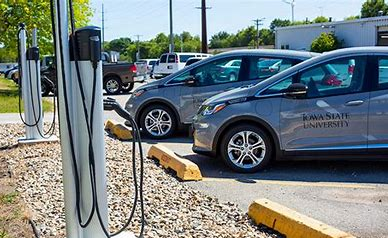Introduction
In today’s rapidly evolving world, the importance of human capital development cannot be overstated. This is particularly true for Africa, where investing in the skills and knowledge of its people is crucial for driving economic growth and sustainable development. Recently, John Dramani Mahama, the flagbearer of the National Democratic Congress, emphasized the urgent need for African leaders to prioritize the development of human capital to propel their economies forward.
The Changing Job Market in Africa
Over the past decade, Africa has witnessed significant changes in its job market, largely driven by advancements in technology and digitalization. New job roles that were once non-existent or emerging have now become mainstream, reflecting the evolving needs of industries across the continent. As the job market continues to evolve at an unprecedented pace, it is essential for education systems to adapt accordingly.
Importance of Developing Human Capital
The development of human capital is vital for driving economic growth and fostering innovation in Africa. A skilled workforce not only increases productivity but also enhances the continent’s capacity to compete globally. By investing in education and training programs that equip individuals with relevant skills, African countries can unlock their full potential and create sustainable pathways to prosperity.
Mahama’s Call to Action
John Dramani Mahama’s message resonates with the pressing need for education reform in Africa. He emphasizes the importance of moving beyond traditional academic learning to incorporate vocational and technical training that aligns with the demands of the modern job market. By doing so, African countries can ensure that their citizens are equipped with the skills and competencies needed to thrive in a rapidly changing world.
Embracing Technology and Innovation
Technology and innovation play a central role in shaping the future workforce in Africa. As industries become increasingly digitized, there is a growing demand for workers with expertise in areas such as coding, data analysis, and digital marketing. It is essential for educational institutions to integrate technological education into their curricula to prepare students for the jobs of tomorrow.
Preparing Children for the Future
The career aspirations of today’s children reflect the evolving nature of the job market, highlighting the need for a holistic approach to education. By providing young people with opportunities to develop both technical and soft skills, African countries can ensure that they are well-prepared for the challenges and opportunities of the future. This includes fostering creativity, critical thinking, and adaptability.
Challenges and Opportunities
While the need for education reform is clear, implementing meaningful change poses significant challenges. These include limited resources, outdated infrastructure, and resistance to change within existing systems. However, there are also opportunities for collaboration between governments, educators, and businesses to address these challenges collectively. By working together, African countries can create an enabling environment for human capital development and drive sustainable economic growth.
Conclusion
In conclusion, Africa must prioritize the development of human capital to unlock its full potential and drive economic growth. John Dramani Mahama’s call to action serves as a timely reminder of the importance of investing in education and training programs that equip individuals with the skills they need to succeed in the 21st century. By embracing technology, fostering innovation, and preparing children for the future, African countries can build a brighter tomorrow for generations to come.
FAQs
- Why is human capital development important for Africa?
- Human capital development is essential for driving economic growth, fostering innovation, and enhancing global competitiveness.
- What are some challenges in implementing education reform in Africa?
- Challenges include limited resources, outdated infrastructure, and resistance to change within existing systems.
- How can African countries prepare children for the future job market?
- By providing opportunities for both technical and soft skill development, fostering creativity, critical thinking, and adaptability.
- What role does technology play in shaping the future workforce in Africa?
- Technology is central to the future workforce, with increasing demand for skills in areas such as coding, data analysis, and digital marketing.
- How can collaboration between governments, educators, and businesses help address challenges in education reform?
- Collaboration can create an enabling environment for human capital development, leveraging resources and expertise to drive meaningful change.















